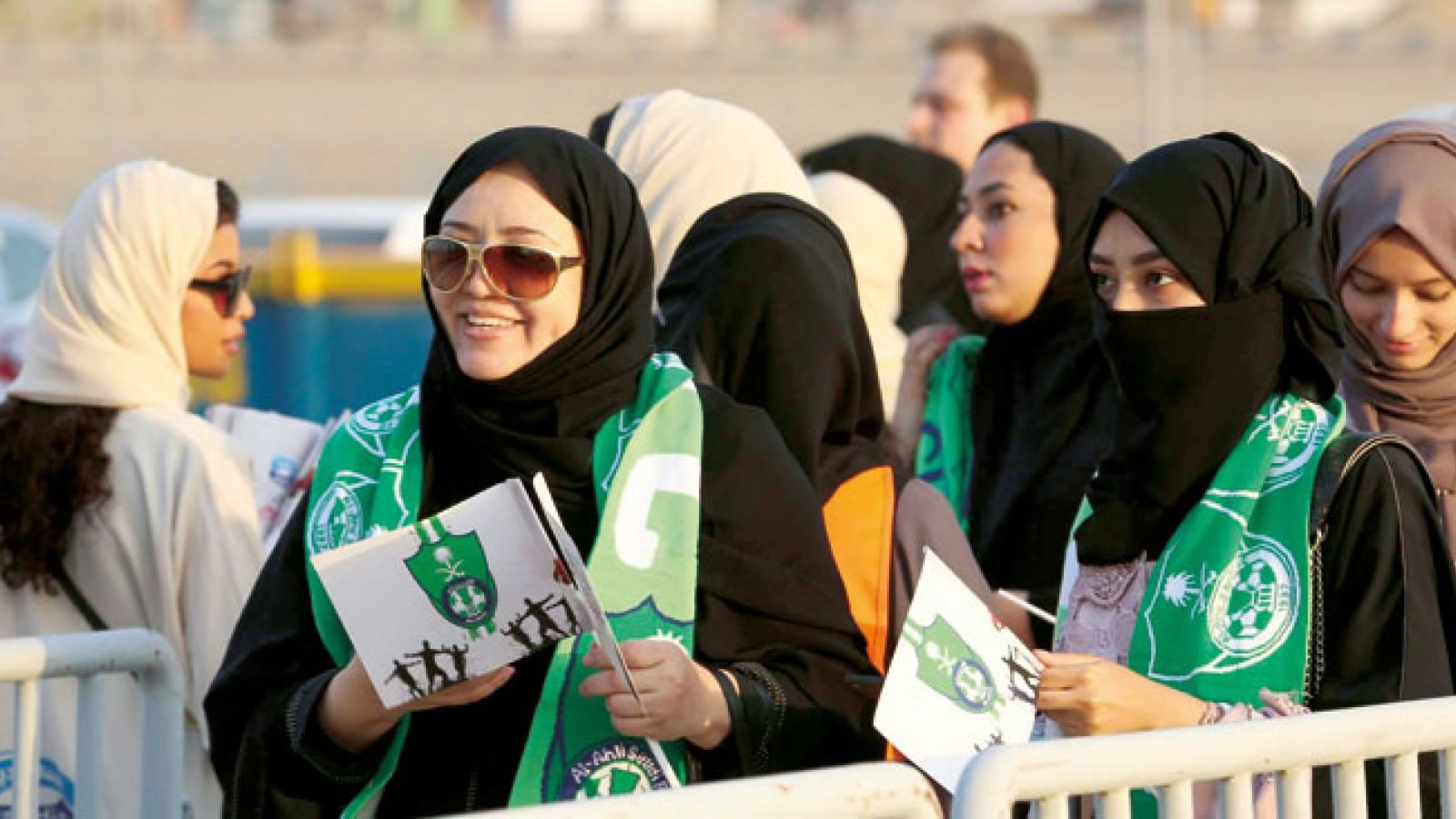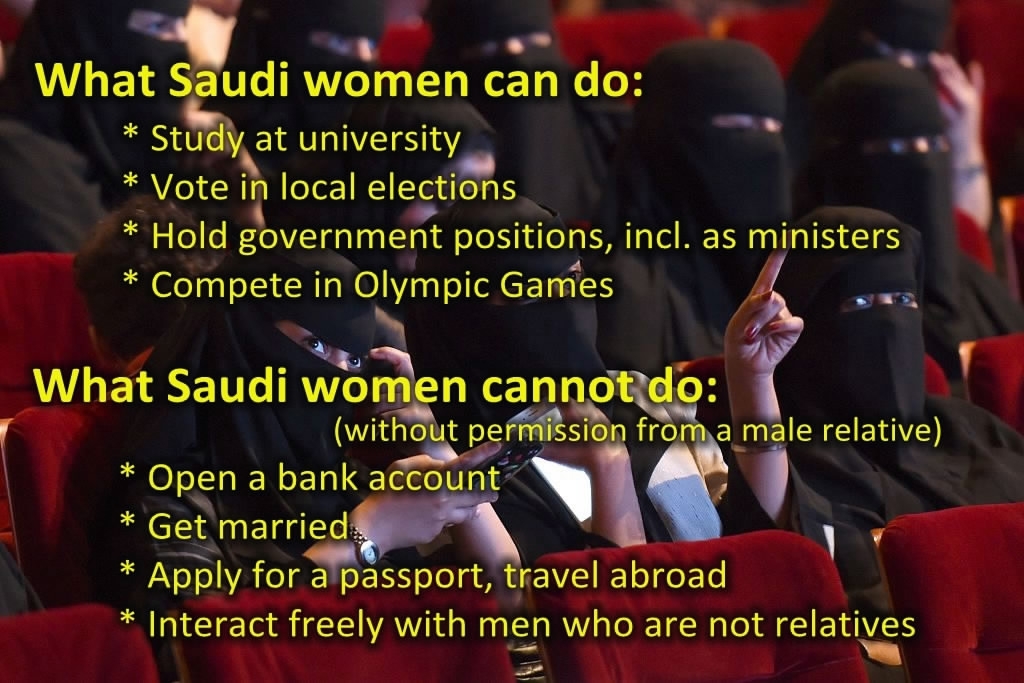Saudi Arabia’s first official half-marathon takes place in Riyadh on Feb. 24 and it may sound like any other marathon taking place around the world.
Except for one requirement.
You have to be a male to participate.

Screenshot from Riyadh's Marathon 2018's official website
Screenshot from Riyadh's Marathon 2018's official website
Without further explanation, the three-letter word –"yes" – indicates a lot here.
‘They are insulting us’
This is certainly not the first time Middle Eastern women have been banned from certain sporting events.
About a year ago on April 7, 2017 during Iran’s first international marathon in Tehran, female participants were banned from the “official track” – the public street – and were only allowed to run a shorter 6-mile distance in a closed-off stadium.
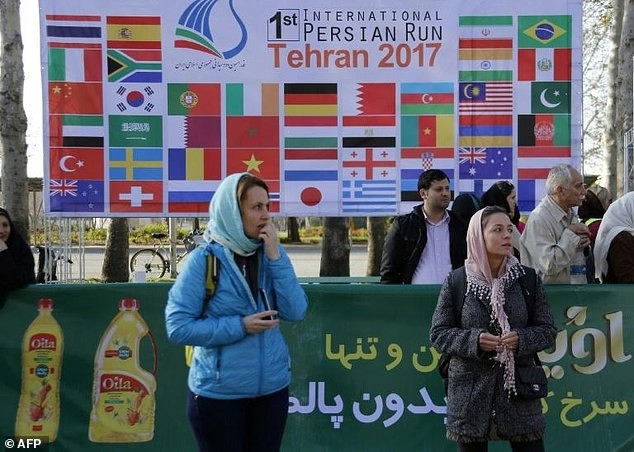
Two Iranian women watch the Tehran marathon on April 7, 2017, from which female runners were barred. /AFP Photo
Two Iranian women watch the Tehran marathon on April 7, 2017, from which female runners were barred. /AFP Photo
“They are insulting us. Everywhere in the world, marathons are held on public streets, not in a closed space,” Nasim told The Daily Mail, a British newspaper. “When they separate us, it is like they are casting us aside.”
There are no rules against men and women running together in Iran.
“The way the women's section was organized is very offensive,” 28-year-old teacher Hedieh Madani told Daily Mail. “I usually run with my friend outdoors. It's really nothing special. If you go to parks, you see men and women running.”
However, professional sporting events are strictly segregated. Females are not even allowed to sit down and watch football in arenas.
'I am very excited'
So far, Iran has still not eased its restrictions on barring women from sports arenas.
Its neighbor Saudi Arabia used to share the same ban. However, it announced four months ago that starting from early this year, families will be able to go into stadiums together, according to a statement released by the General Sport Authority, the kingdom’s governing body for sports.
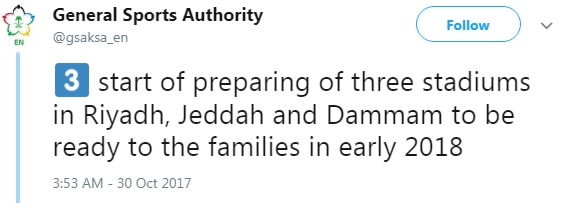
Screenshot from General Sports Authority's twitter handle
Screenshot from General Sports Authority's twitter handle
That means the long-standing ban of women not being allowed into sporting arenas has come to an end in at least three stadiums in major cities.
“I don’t know how to describe my feelings to you,” Ghadah Grrah, 22-year-old, told the Guardian. “I am very excited.”
Read more: Goal! Saudi women attend football match for first time
That was not the only step the kingdom has made towards increasing women’s rights.
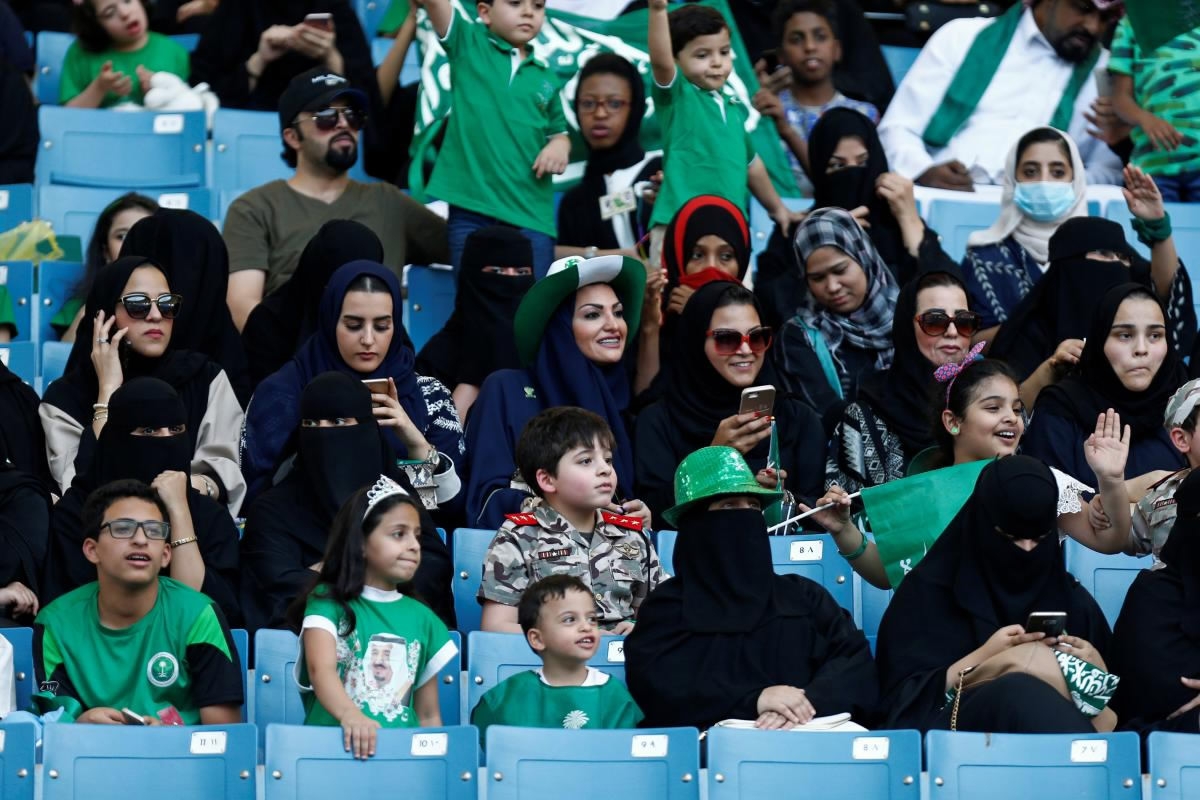
Women attend a rally to celebrate the 87th annual National Day of Saudi Arabia in Riyadh, Saudi Arabia on Sept. 23, 2017. /Reuters Photo
Women attend a rally to celebrate the 87th annual National Day of Saudi Arabia in Riyadh, Saudi Arabia on Sept. 23, 2017. /Reuters Photo
In a landmark move in September,
Saudi women would be allowed to drive starting in June. Many called it “historic,” and according to the United States state department, “a great step in the right direction.” At the moment, Saudi Arabia is the only country in the world where female drivers are not permitted.
The kingdom has also lifted a 35-year public ban on screening films and has encouraged mixed-gender celebrations, which has never been seen there before.
Read more: Saudi Arabia begins screening films after decades-long ban lifted
Understanding the changes
The reforms are in line with the plan announced by 32-year-old Saudi Arabian Crown Prince Mohammad bin Salman called "Vision 2030" which aims to bring economic and social reforms to prepare the country for the approaching post-oil era.
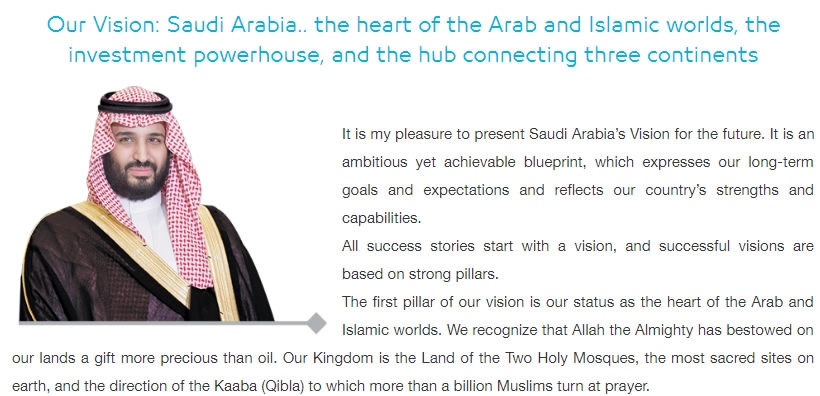
Selected screenshot of Prince Mohammad's message from the official website of "Vision 2030"
Selected screenshot of Prince Mohammad's message from the official website of "Vision 2030"
Prince Mohammad said in October that the return of “moderate Islam” was key to his plans to modernize the gulf kingdom.
"We want to lead normal lives, lives where our religion and our traditions translate into tolerance, so that we coexist with the world and become part of the development of the world," he said.
Long way to go
Despite of gradual reforms, a lot of everyday things remain out of reach for women in the conservative country.
Under Saudi law, women are required to dress loose-fitting, full-length robes known as “abayas,” and headscarves if they are Muslim.
The strict dress code is only part of the “rules” Saudi ladies have to obey.
If females want to travel abroad, work or even open a bank account, they will have to be accompanied by, or receive written permission from, a male guardian.

